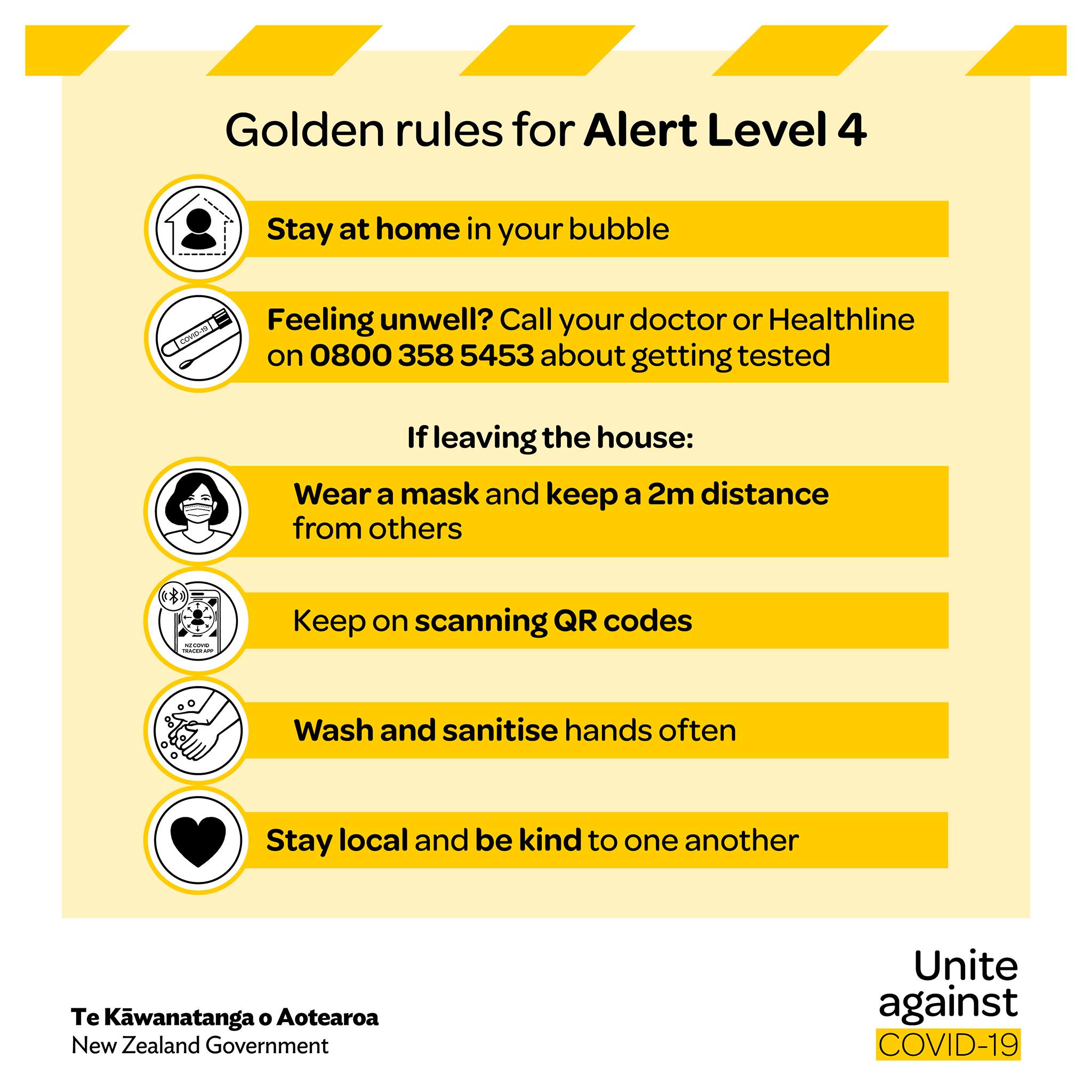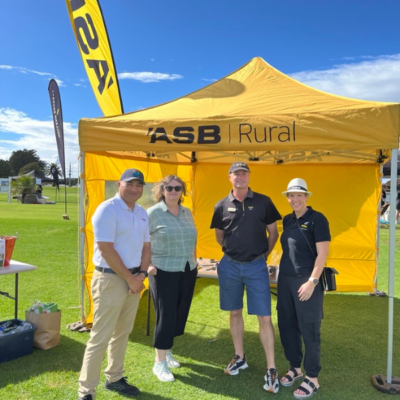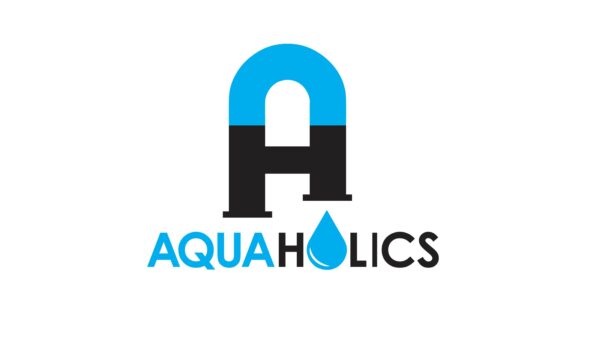As of August 17, 2021 at 11.59pm, all of New Zealand is in Alert Level 4 due to a community case of the COVID-19 Delta variant.
Coming more than one year after the 2020 lockdown, the Government has refined its Alert Level processes and information, meaning a few changes to what Alert Level 4 looks like for businesses.
Please scroll down for business support information.
Only certain businesses may remain open to the public during the Alert Level 4 period. If a business is not sure if it provides Alert Level 4 services or products, it should close.
If you are a business or worker in a non-Alert-Level-4 business, you may still work — as long as this is from home. If you cannot work remotely, you must stay home.
Businesses that can have customers on their premises
You can open to customers if you are a:
- supermarket, dairy or food bank
- liquor store (in Licensing Trust Areas)
- petrol station
- self-service laundry
- health service, or an entity involved with the deceased or producing health sector materials
- accommodation service
- court or tribunal
- social and community-based service to maintain critical wellbeing or crisis support
- emergency services
- Parliamentary services
- transport and logistics service, including passenger transport by road, rail, air or sea
- school hostel.
All other businesses must not have customers on their premises.
For businesses that are able to operate
If your employees need to work on site, you should:
- limit the number of people on site so everyone can safely stay 2 metres apart
- offer flexible working arrangements, for example, staggered meal breaks, or staggered start and finish times to help with physical distancing
- clean and disinfect your workplace regularly
- provide employees with hand washing facilities
- have personal protective equipment (PPE) available for employees to use
- display your QR code and have an alternative contact tracing system for workers and customers to use.
If your business cannot meet all Alert Level 4 rules to operate safely, your workers should not go into work.
Travelling to work at Alert Level 4
If someone at work has COVID-19
If an employee develops symptoms of COVID-19 at work, send them home and ask them to call Healthline or their GP for advice on getting a test.
If your business is a location of interest

Government business support
Significant Government support for businesses and workers has been triggered following a rise in alert levels to combat COVID-19 in the community.
The measures include:
The Wage Subsidy Scheme (WSS) which is available nationally when there is a regional or national move to Alert Levels 3 and 4 for a period of seven days and helps eligible businesses keep paying staff and protect jobs.
The WSS rates have been increased to reflect the increase in wage costs since the scheme was first used in March 2020. Businesses will be eligible for $600 per week per full-time equivalent employee, and $359 per week per part-time employee.
Applications are open from Friday, August 20.
The Resurgence Support Payment (RSP) is a payment to help support businesses or organisations with one-off costs due to a COVID-19 alert level increase to level 2 or higher. This is available to eligible firms at the same time as the WSS.
When the RSP is activated, eligible businesses and organisations can apply to receive the lesser of:
- $1,500 plus $400 per full-time equivalent (FTE) employee, up to a maximum of 50 FTEs
- four times (4x) the actual revenue decline experienced by the applicant.
The COVID-19 Short-Term Absence Payment (STAP) is available for businesses, including self-employed people, to help pay their workers who cannot work from home while they wait for a COVID-19 test result.
It’s to help businesses keep paying eligible workers who:
- cannot work from home, and
- need to miss work to stay home while waiting for a COVID-19 test result (in line with public health guidance).
The COVID-19 Leave Support Scheme (LSS) is available for employers, including self-employed people, to help pay their employees who need to self-isolate and can’t work from home.
This means your workers:
- can’t come into work because they are in one of the affected groups and have been told to self-isolate, and
- can’t work from home.
Both the Leave Support Scheme (LSS) and Short-Term Absence Payment (STAP) rates will also be increased in line with the WSS, as each of these payments is set at the same rate.
Want more top tips, advice and insights? Check out our news section.
















































